Hadley v Baxendale Case Study: Business Law & Academic Misconduct
VerifiedAdded on 2023/05/28
|5
|915
|101
Case Study
AI Summary
This assignment provides a comprehensive analysis of the landmark case Hadley v Baxendale, focusing on its implications in business law concerning contract breaches and damages. The case revolves around Hadley's claim against Baxendale for losses incurred due to a delayed crankshaft repair. The court's judgment, delivered by the Exchequer Court, favored Baxendale, establishing the principle that special damages are recoverable only if the defendant was aware of the special circumstances at the time of contract formation. Furthermore, the assignment outlines the Sale of Goods legislation in Australia, listing the relevant acts across different territories. It also examines Kent Institute Australia’s Academic Misconduct Policy and Procedure, defining academic misconduct, cheating, and plagiarism, and differentiating between minor and serious offenses. Desklib offers this document along with a wide array of study resources.
1 out of 5
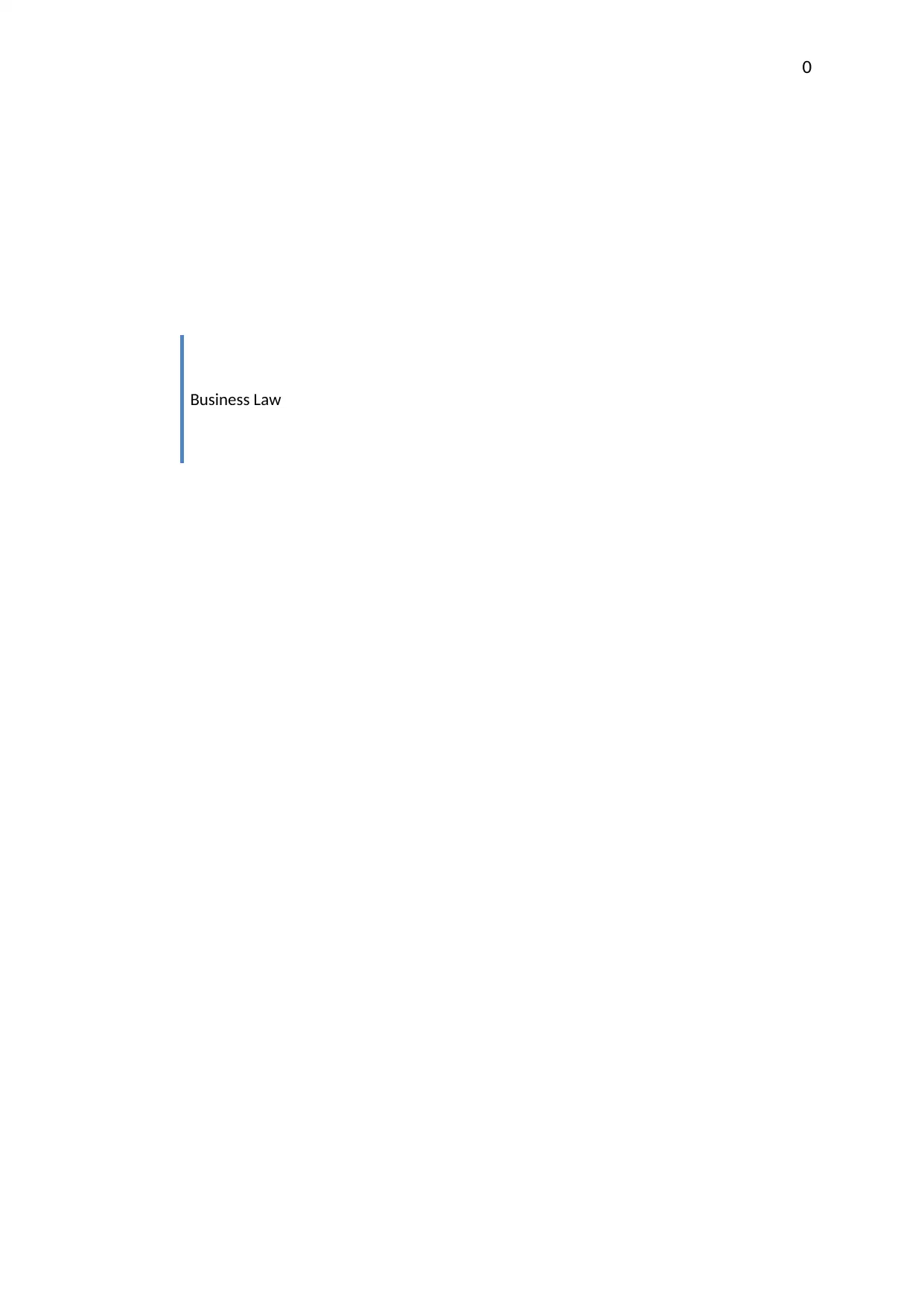
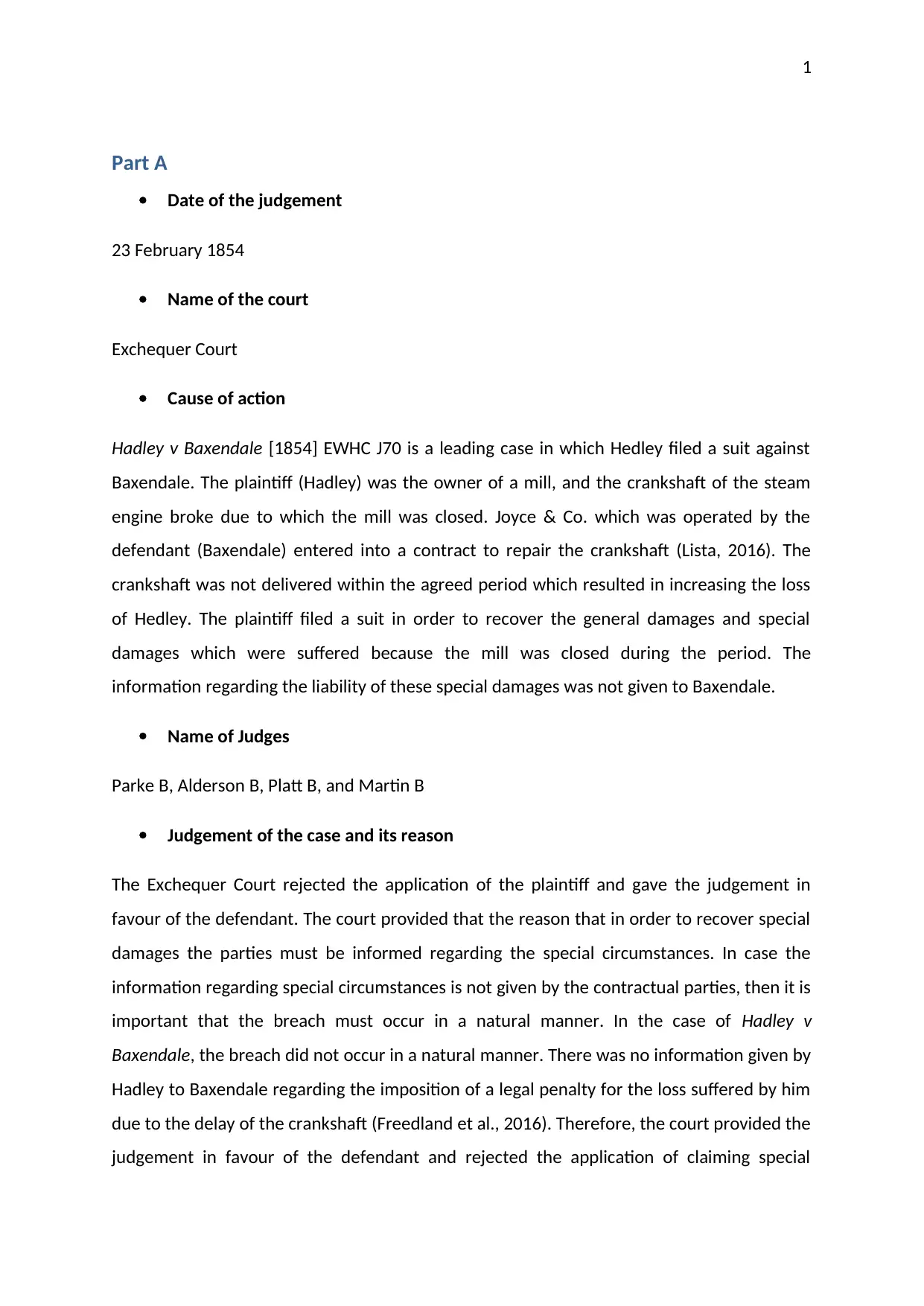
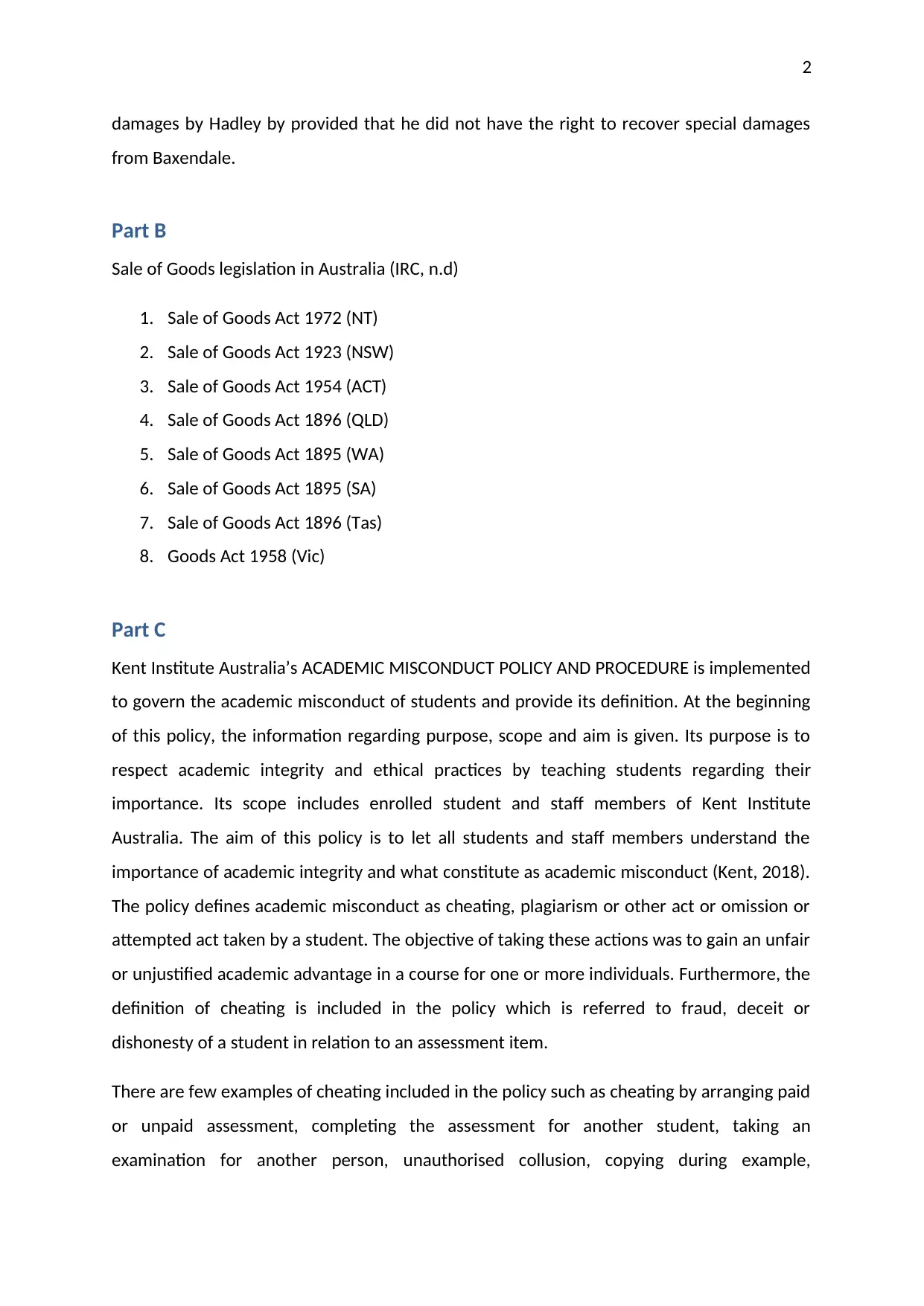

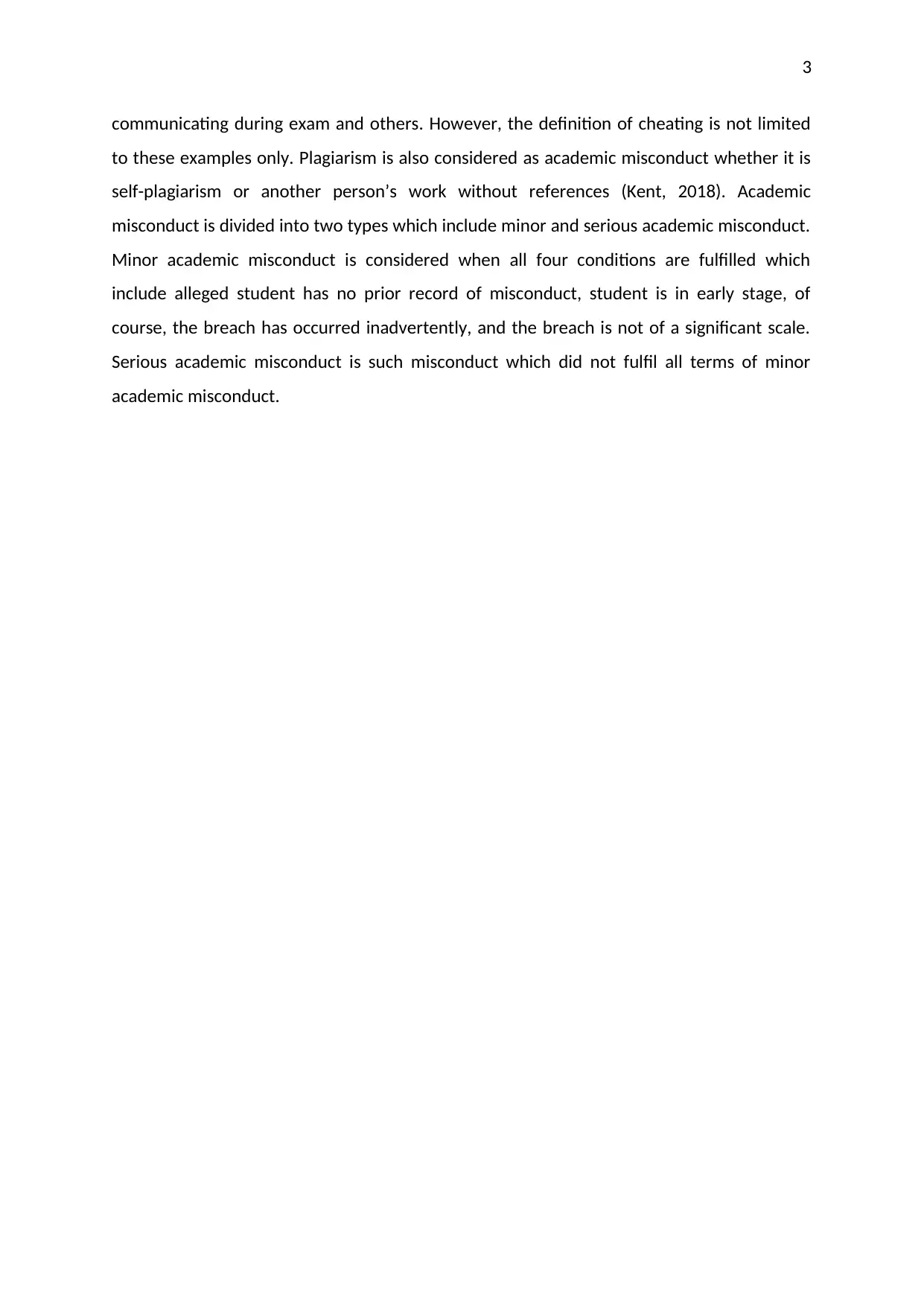
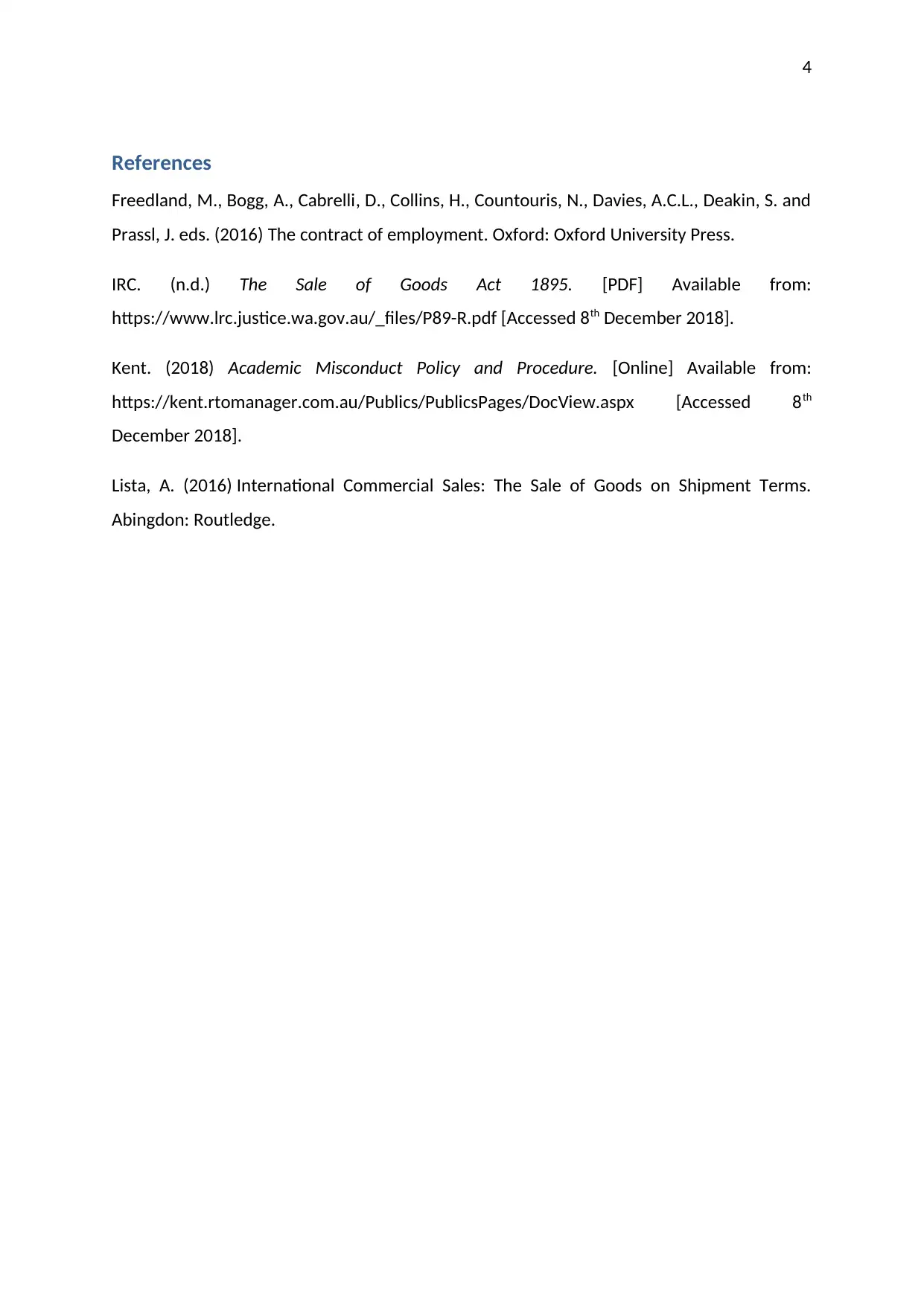

![[object Object]](/_next/static/media/star-bottom.7253800d.svg)